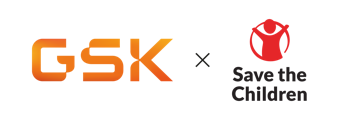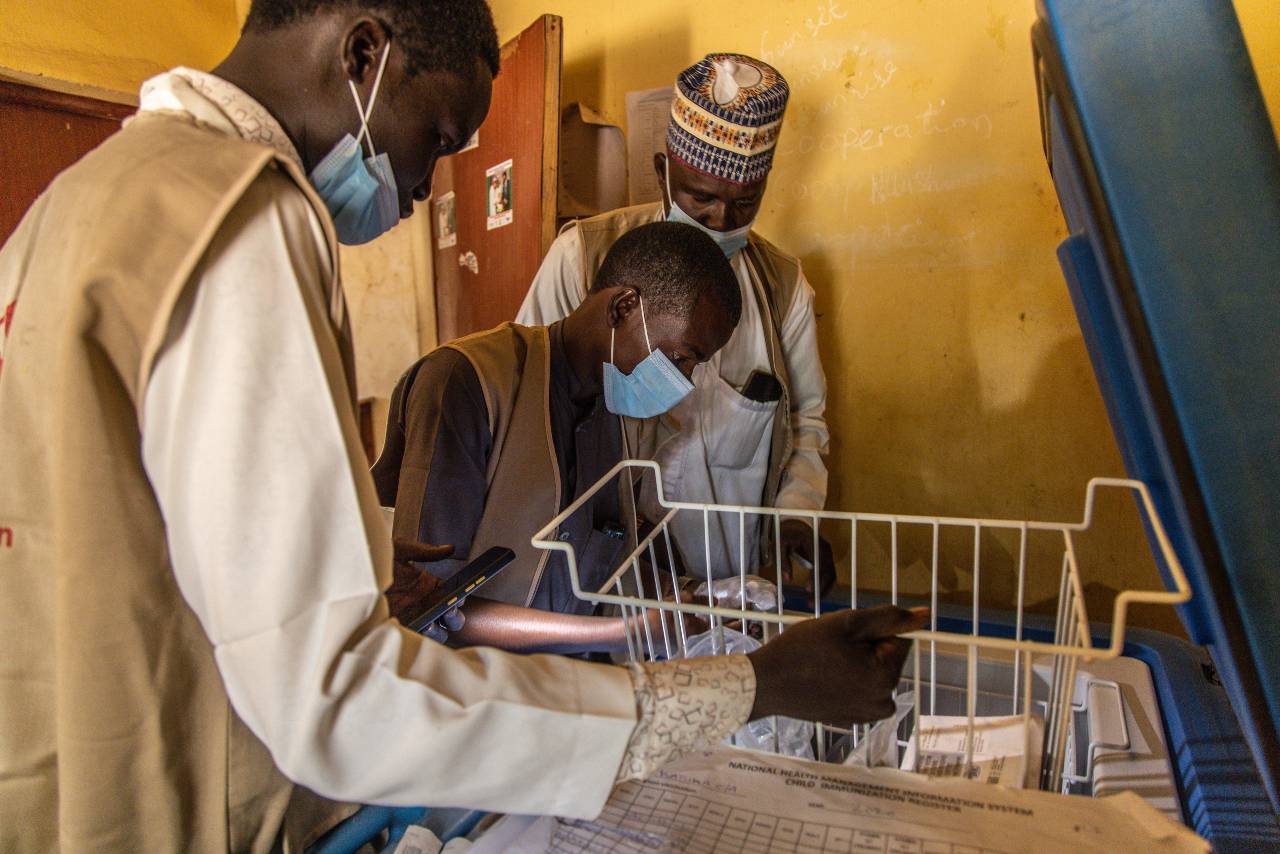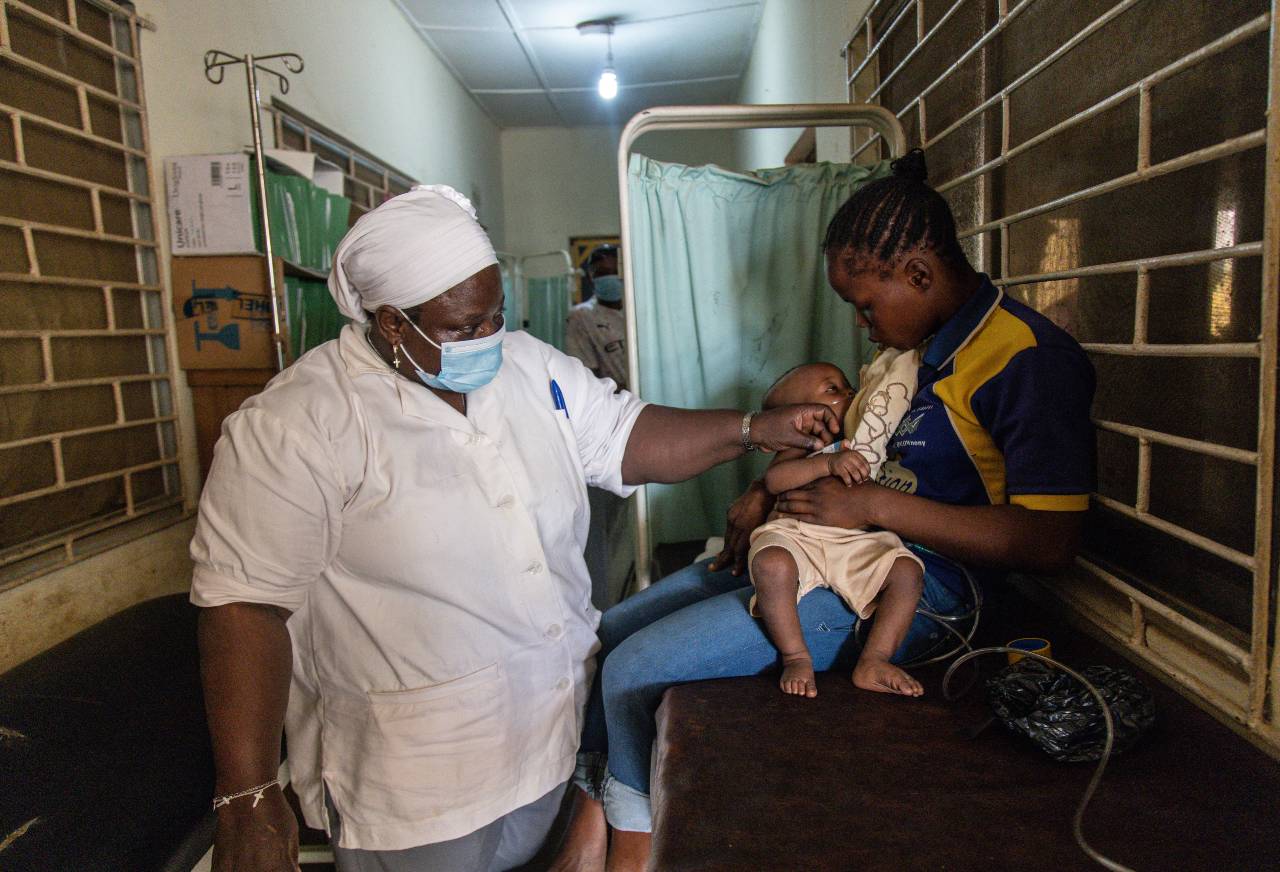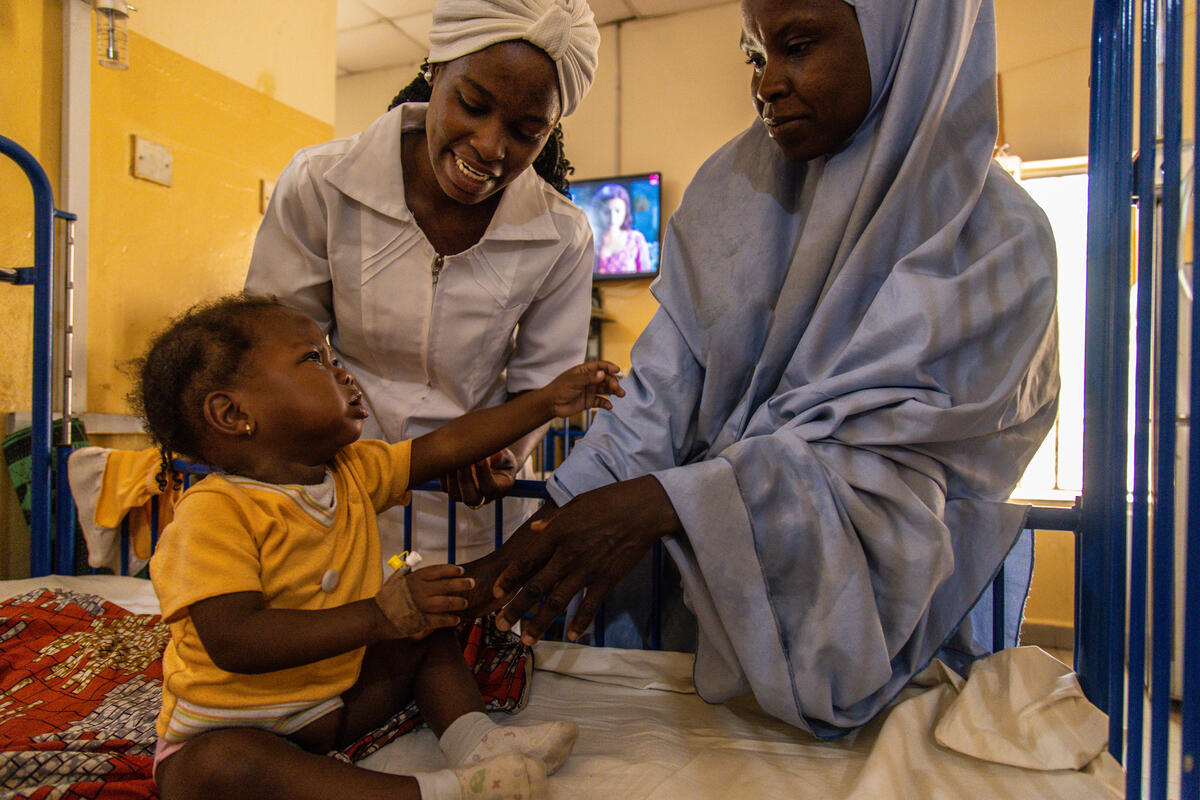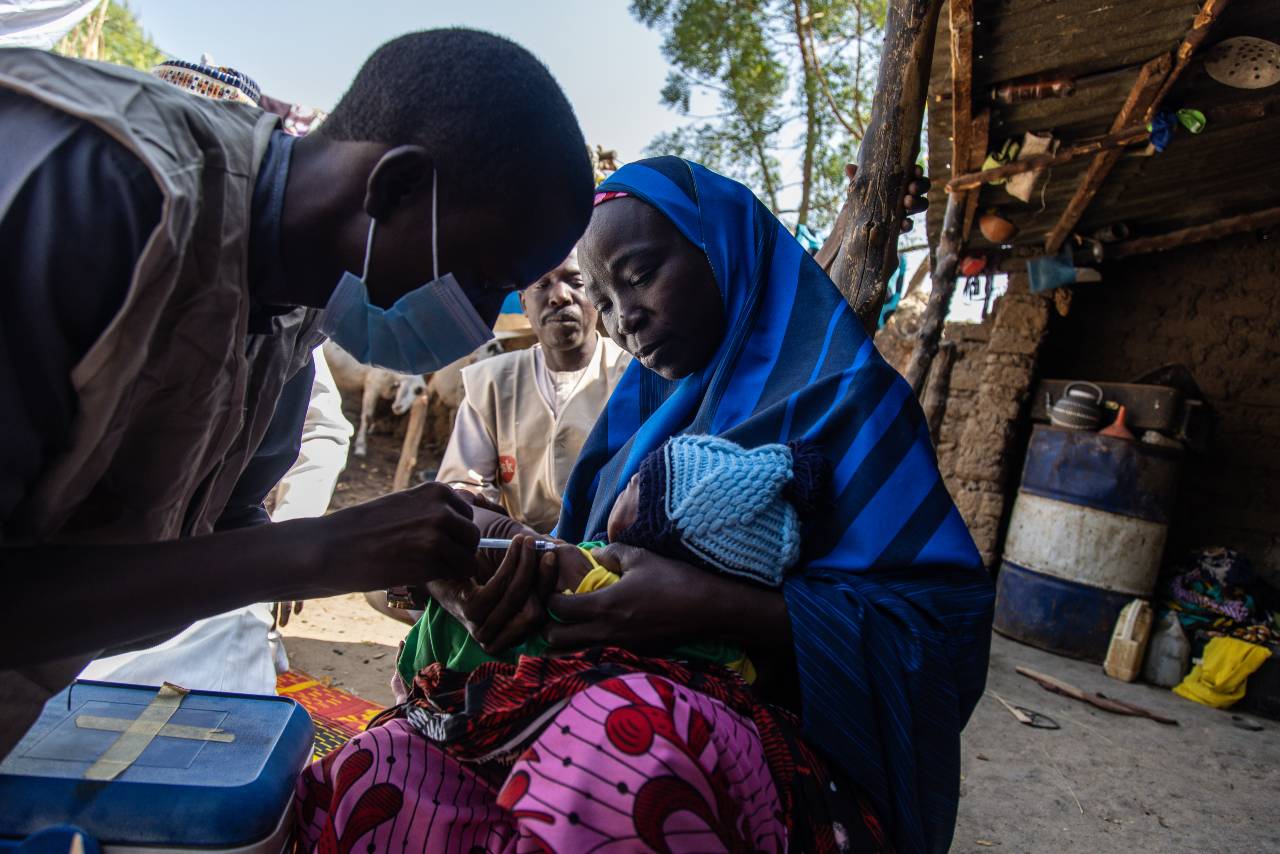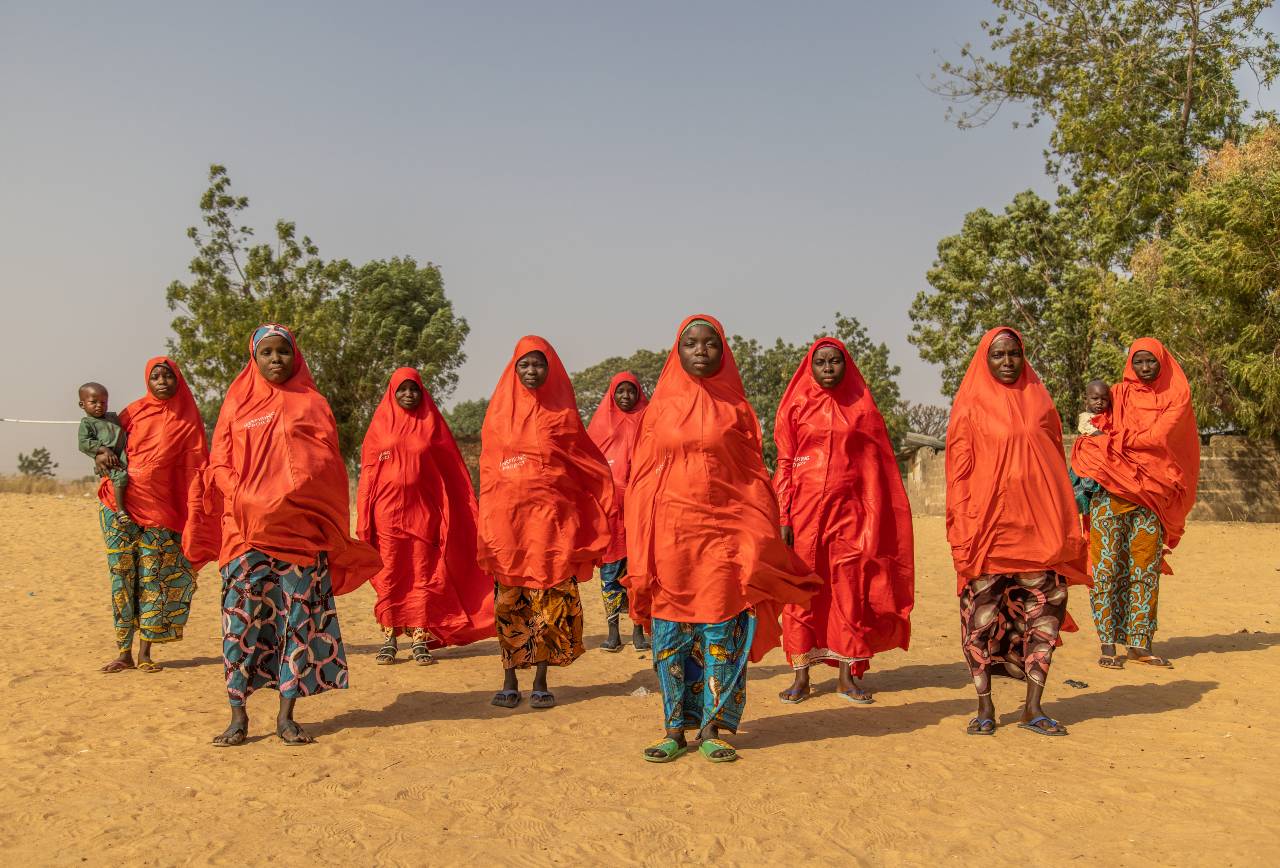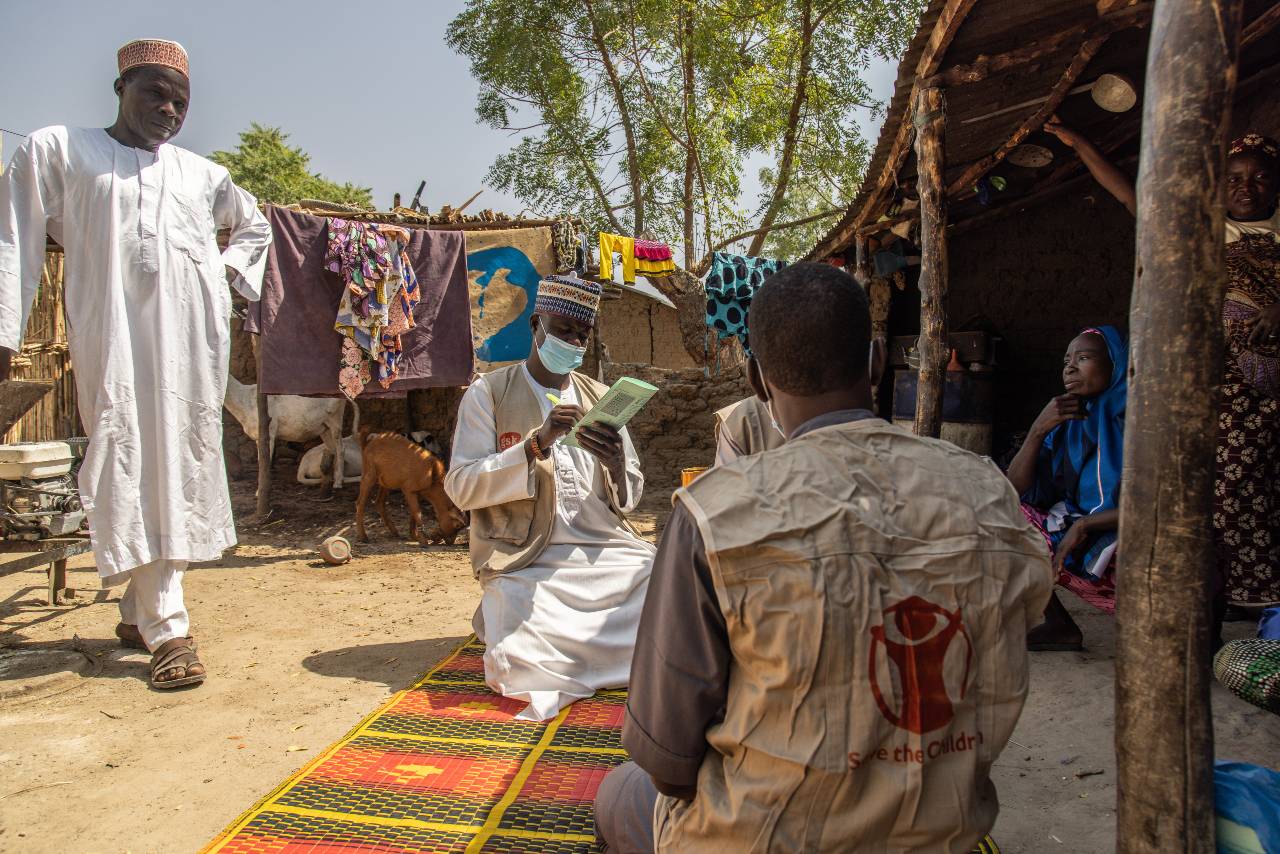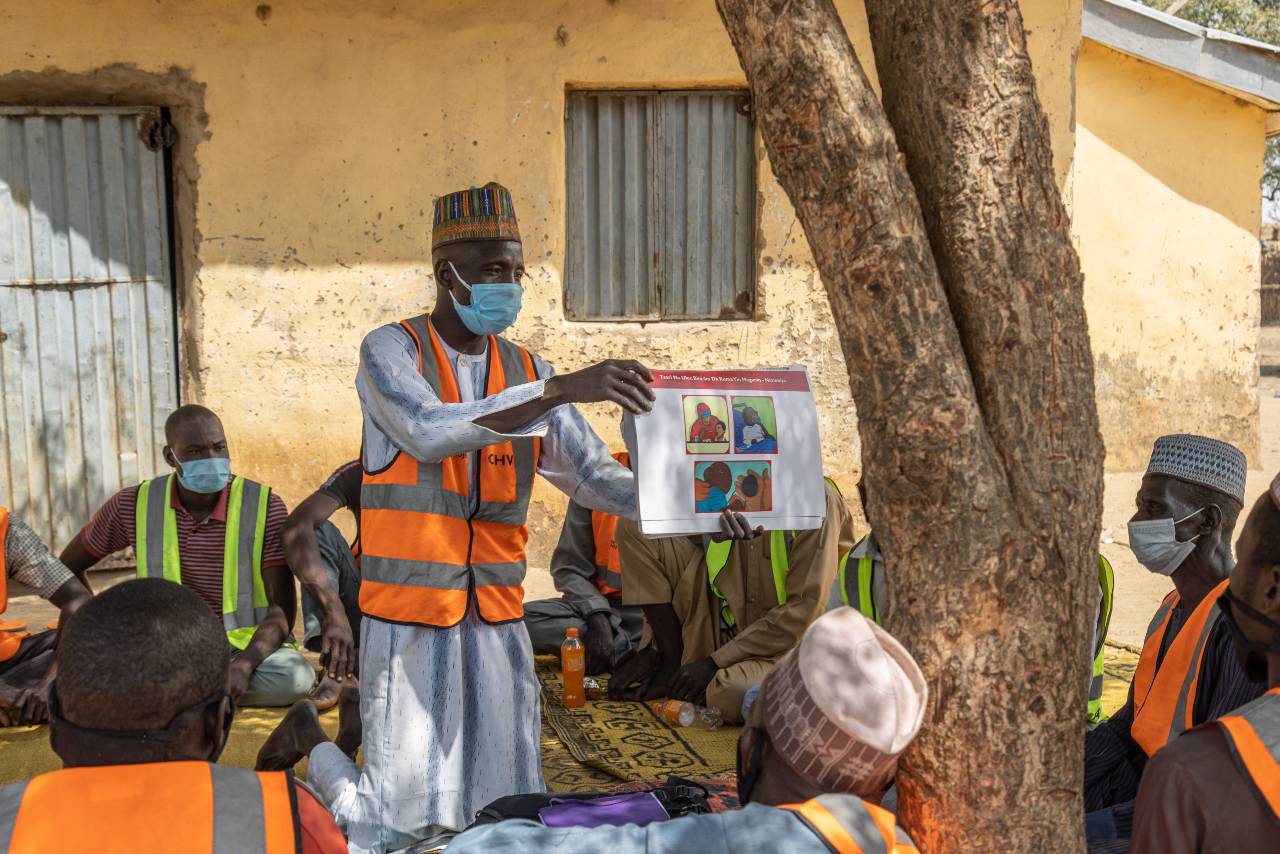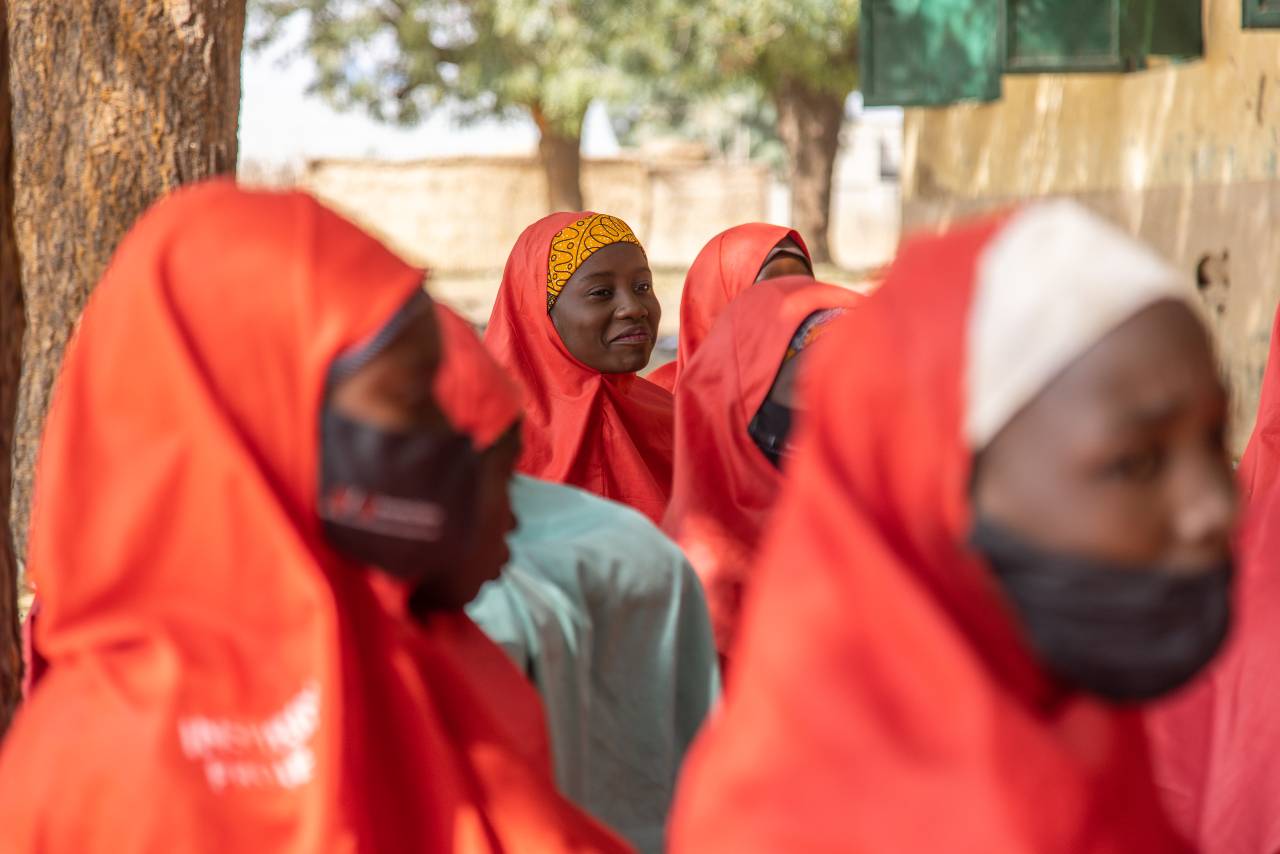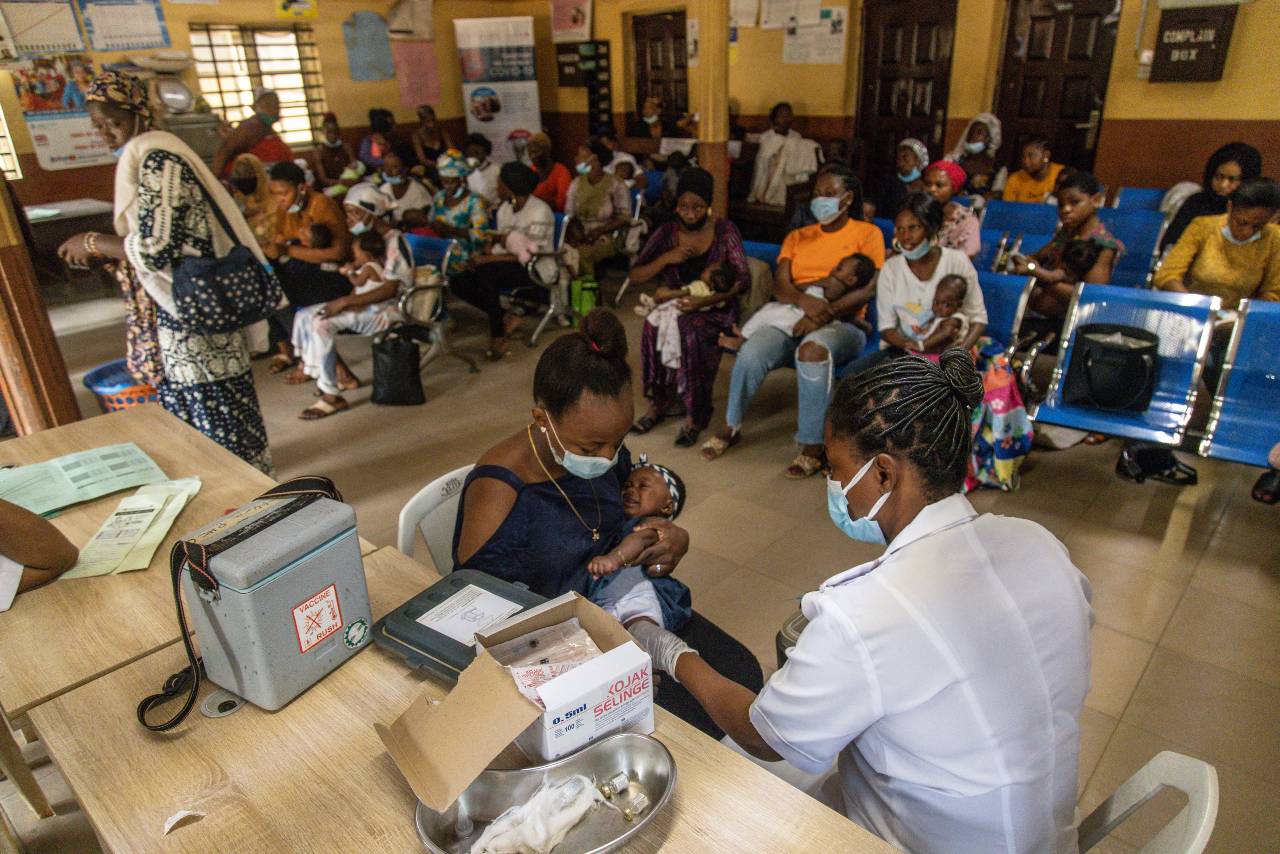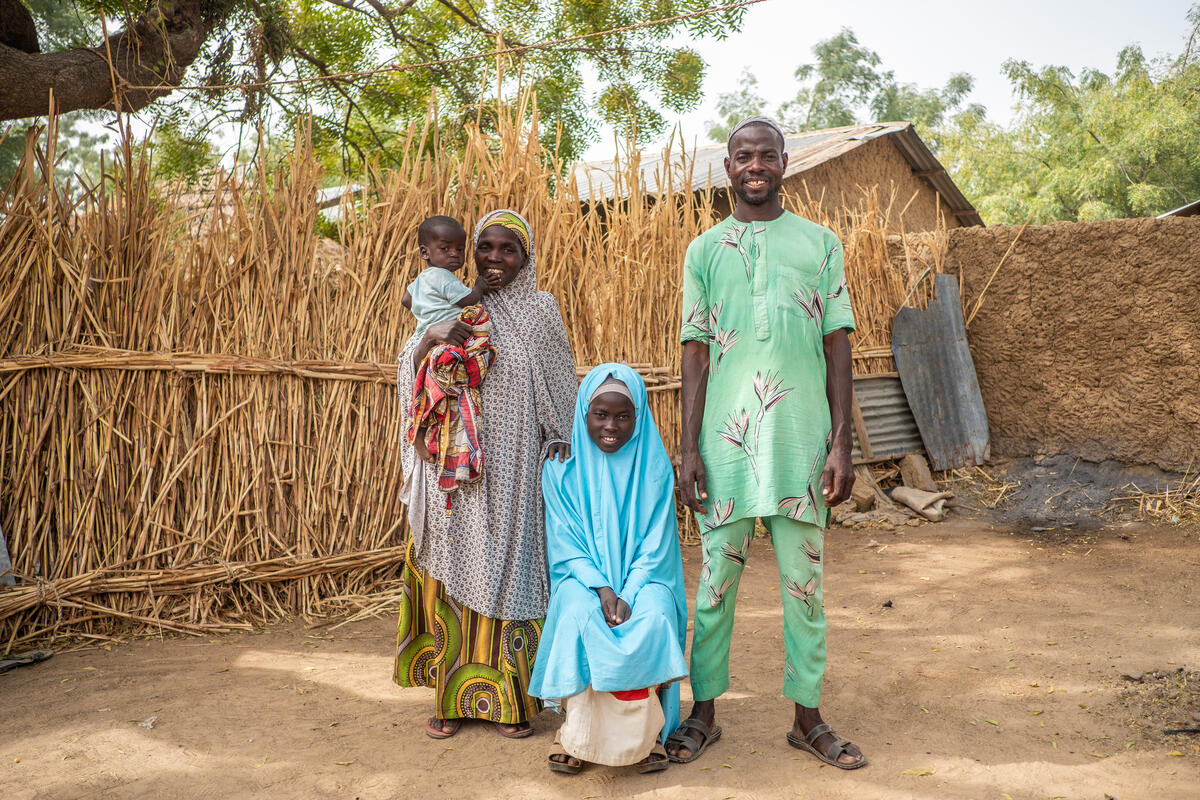As a parent, there is nothing worse than seeing your child poorly and in pain.
Mallam has two children and lives with his wife in Jigawa state, Nigeria. When his nine-month-old son, Bashir, fell ill he didn’t know what to do.
“He wasn’t breathing well,” Mallam said. “His stomach also made some noises and his chest was stiff.”
It took a visit from a community health volunteer, Sani, to put Bashir on a path to diagnosis and treatment. Sani is one of the health workers we’ve trained to spot the signs of pneumonia, as part of our GSK-funded INSPIRING programme.
“I saw the child had chest issues and difficulty breathing,” Sani says. He referred Bashir to a Save the Children-supported health centre in nearby Balago.
Once there, Mallam met Save the Children health worker Patience. “There is nothing [Patience] didn’t do – tests, scans, measure everything was OK.”
But, as Patience quickly recognised, everything wasn’t OK, and she referred Bashir to the primary health care facility in nearby Kyawa, where Bashir was diagnosed with pneumonia, malaria and malnutrition.
At the health centre, he received the treatment he needed. It took two months for him to recover – with Sani following up with the family to make sure he was making progress.
“I am happy and grateful for his recovery,” says Mallam. “He is getting better.”
